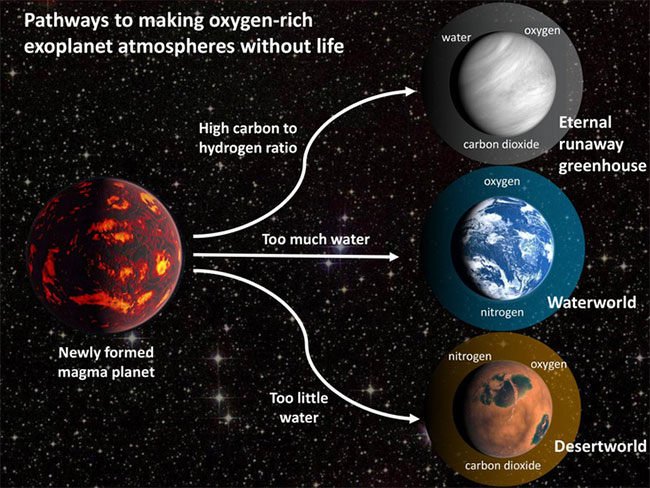Oxygen-life gas may no longer be a reliable sign in your quest for alien life.
Looking directly at the surface of an exoplanet is still a fiction, which is why scientists have long developed technologies to quantify the viability of a planet based on its atmosphere. Ideally, the detection of a characteristic biological gas, in which oxygen is considered a “golden sign”: it can both nourish life and be produced by photosynthesis.

However, new research on AGU Advances has shown that planets can survive oxygen without needing life.
According to Dr. Joshua Krissansen-Totton of the Department of Astronomy and Astrophysics at the University of California at Santa Cruz (USA), lead author of the study, the delineation between biological oxygen and generated oxygen by other processes will be very important in your research. for habitable exoplanets.
According to EurekAlert, with rocky Earth-like planets, processes such as the release of carbon monoxide and hydrogen from molten rock, weathering of rock … will remove all natural oxygen produced by light. ultraviolet.
The earth stays in balance and is full of oxygen thanks to the strong growth of cyanobacteria billions of years ago, the organism “eats” toxic gases and releases oxygen, faster than the loss process. In other words, without life, the Earth has no oxygen.
But some models lead to completely different scenarios: These are three types of oxygen-free worlds that do not require life.
First, it is a planet like Earth, but with more water – oceanic planetary form – will have very deep oceans, which puts pressure on the crust and prevents geological activities so that there is no no melting or weathering of rocks, so oxygen is not removed from atmosphere.
Second, it is a form of “desert planet” with very little water, the primitive surface of molten magma froze rapidly while the water was still in the atmosphere. This vaporous atmosphere allows oxygen to build up as the water breaks up and the hydrogen atoms are lost in space.
Third, there are planets like Earth but a higher ratio of carbon dioxide to water, leading to severe greenhouse effect like Venus, the water gets too hot and condenses into “sea of clouds”.
Most of the volatile substances present on this planet have been “confined” in this sea of clouds, the amount trapped in the mantle – which can deoxidize – too little.
So, according to the team, in addition to the tool for finding signs of the “vital gas” which is oxygen, it is very important to develop parallel tools to help determine which planets are one of the three types. of planets. false “the aforementioned life or not, thus orienting itself more precisely than the” alien “hunt.


